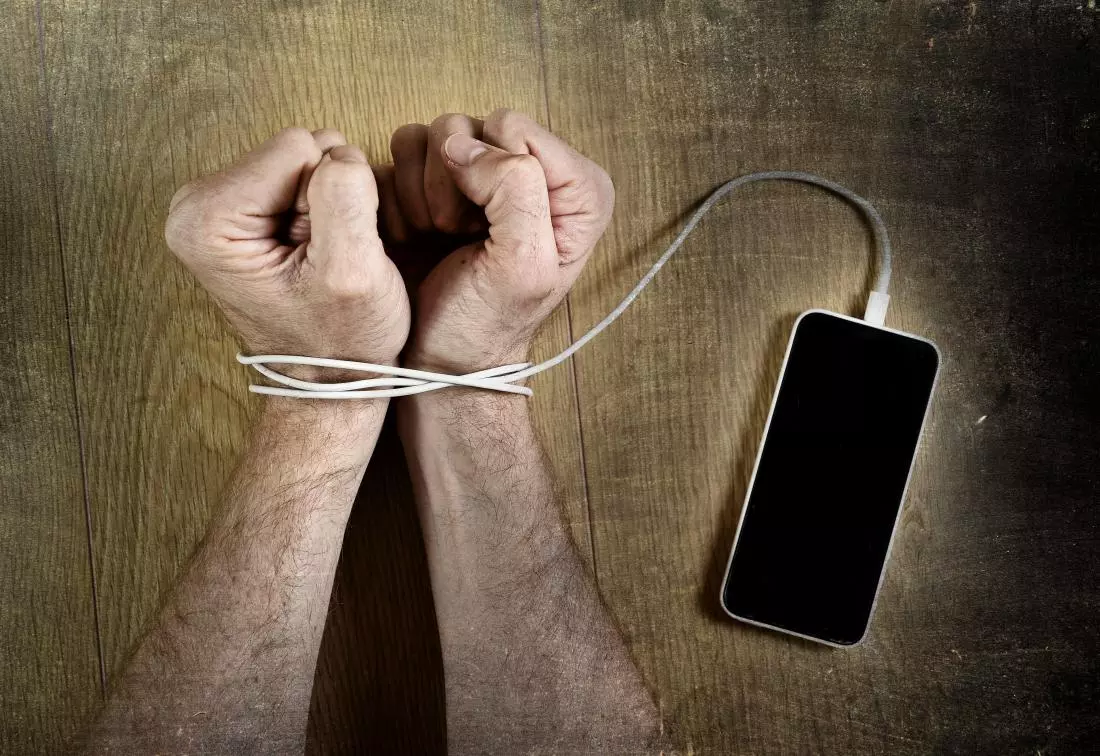
Home » Social Media Addiction

An online space known as a social networking site allows users to register, create profiles, and develop personal networks that link them to other users. The global social networking phenomena has grown quickly. The excessive use of social networking sites such as Instagram, Facebook,Twitter, YouTube can cause several mental hazards. It is confirmed in various studies on brain imaging that Facebook and Instagram addicted individuals exhibit similar neural responses with gambling and heroin addiction.
There are two types of addiction one is Physical addiction and the other one is Behavioural Addiction.
Physical Addiction: A physical condition known as physical dependency is brought on by long-term usage of a drug that builds tolerance and results in unpleasant bodily effects upon sudden or gradual drug withdrawal. These are dependencies on chemicals that a person consumes .The most prevalent physical addictions are: Alcohol, Tobacco, Opioids, Prescription drugs, Cocaine, Marijuana, and Amphetamines
Behavioural Addiction: A behavioural addiction is a type of addiction characterized by a need to participate in an enjoyable, non-drug-related action known as a natural reward. An individual starts to behave obsessively on a behaviour after being dependent on the pleasurable emotions that follow from particular acts, e.g. Food Addiction, Pornography Addiction, Cell phones or smart phones, Video Game Addiction, Work Addiction, Spiritual obsession (not to be confused with religious devotion),Shopping Addiction, Gambling Addiction.
A behavioural addiction known as “Social Media Addiction” is defined as having an excessive preoccupation with social media, being driven by an irresistible want to access or use social media, and spending so much time and energy on social media that it interferes with other crucial aspects of one’s life. When someone uses social networking sites as a significant coping strategy to deal with stress, loneliness, or despair, social media use becomes problematic. These users receive ongoing benefits from social media use that they do not receive in real life, leading them to partake in the activity more frequently.
Social media’s adverse impact on brain development
The prefrontal cortex, which is essential for impulse control, emotional regulation, and regulating social conduct, and the amygdala, which is essential for emotional learning and behaviour, may both experience unique alterations as a result of regular social media usage. It could also develop heightened sensitivity to social praise and criticism. Teenagers could thus be more emotionally receptive to social media’s communicative and interactive features. The human brain cannot function for extended periods of time without rest when faced with an infinite amount of information.
An additional negative effect of social media on mental health
Other detrimental effects that social media use may have on a person’s mental health includes:
Several potential drawbacks of social media, including the connection between poor sleep and social media use. Sleep deprivation were one of these effects. The neurological development of teenage brains can be impacted by inadequate sleep leading to insomnia which instigates anxiety in young individuals.
Depression symptoms can also result from using social media, since the more unpleasant material you are exposed to, the more negative thoughts you will have Nowadays the entire youth generation is under the influence of peer pressure specially in the area of group belongingness. These young individuals seek and expects to be liked and appreciated by their peers but if their desires are not fulfilled according to their choice, their self-esteem tend to lower. Suicidal thoughts and deeds that endanger the lives of the depressed person and their loved ones can also be brought on by depressive symptoms. Viewers view specially selected material on Facebook and Instagram, which consists of posts and adverts created with the user’s interests in mind. Viewers could experience joy or inspiration when they read about other people’s fantastic relationships, wonderful occupations, or stunning houses on social media. However, because their own lives are not as “perfect” as those they see on Facebook or Instagram, some people may view these images and experience resentment, depression, or even suicidal thoughts.
Some tips to detox social media addiction:
Governments and technology companies need to work together to address the growing mental health problem since more than a third of young people report they use screens far into the night. Also, if the severity of the addiction is in higher scale then the individuals should be addressed or referred to mental health professionals for suitable therapies.
From
Monica T. Nakra
Assistant Professor, Psychology
June 10, 2023RECENT POSTS
CATEGORIES
TAGS
Agriculture Agriculture future AI Architecture artificial intelligence Bachelor of Commerce BA English BA Psychology BTech AIML BTech CSE BTech cybersecurity BTech Engineering Business management career Career-Specific Education career guide career option career scope Civil engineering commerce and management Computer Science Computer science engineering Data science degree education Engineering Engineering students English Literature english program Fashion Design Fashion design course Higher Education Journalism journalism and mass communication law Law career Machine Learning mathematics MBA MBA specialization Mechanical Engineering Pharmacy Psychology Research and Development students
University Address: Nachauli, Jasana Road, Faridabad, Haryana
For Admissions :
Toll Free: 1800-120-4613
Mobile : 8447744303 | 8447744304 | 8447744306 | 8447744309
8700003974 | 8700003411 | 8700003749
Address: C-72, Second Floor, Shivalik, Near Malviya Nagar,
Above HDFC Bank, New Delhi 110017
Landline No. - 011-46570515 / 45138169 / 41755703
Mobile No. - +91-7303152412 / +91-7303152420 / +91-9311321952
Jagmani Kutir, Ground Floor, Road No-1, Rajeev Nagar,
Near Darbar Marriage Hall, Patna-800024, Bihar
Contact No: 9818352069/ 8130120095
Mail: kanhaiya@lingayasvidyapeeth.edu.in
Copyrights © 1998 - 2025 Lingaya's Vidyapeeth (Deemed To Be University). All rights reserved.
It is important to note that the following email IDs and domains are fraudulent and do not belong to our university.
LV only conducts physical/online verification of any document related to examination on the following email id: